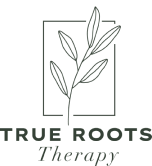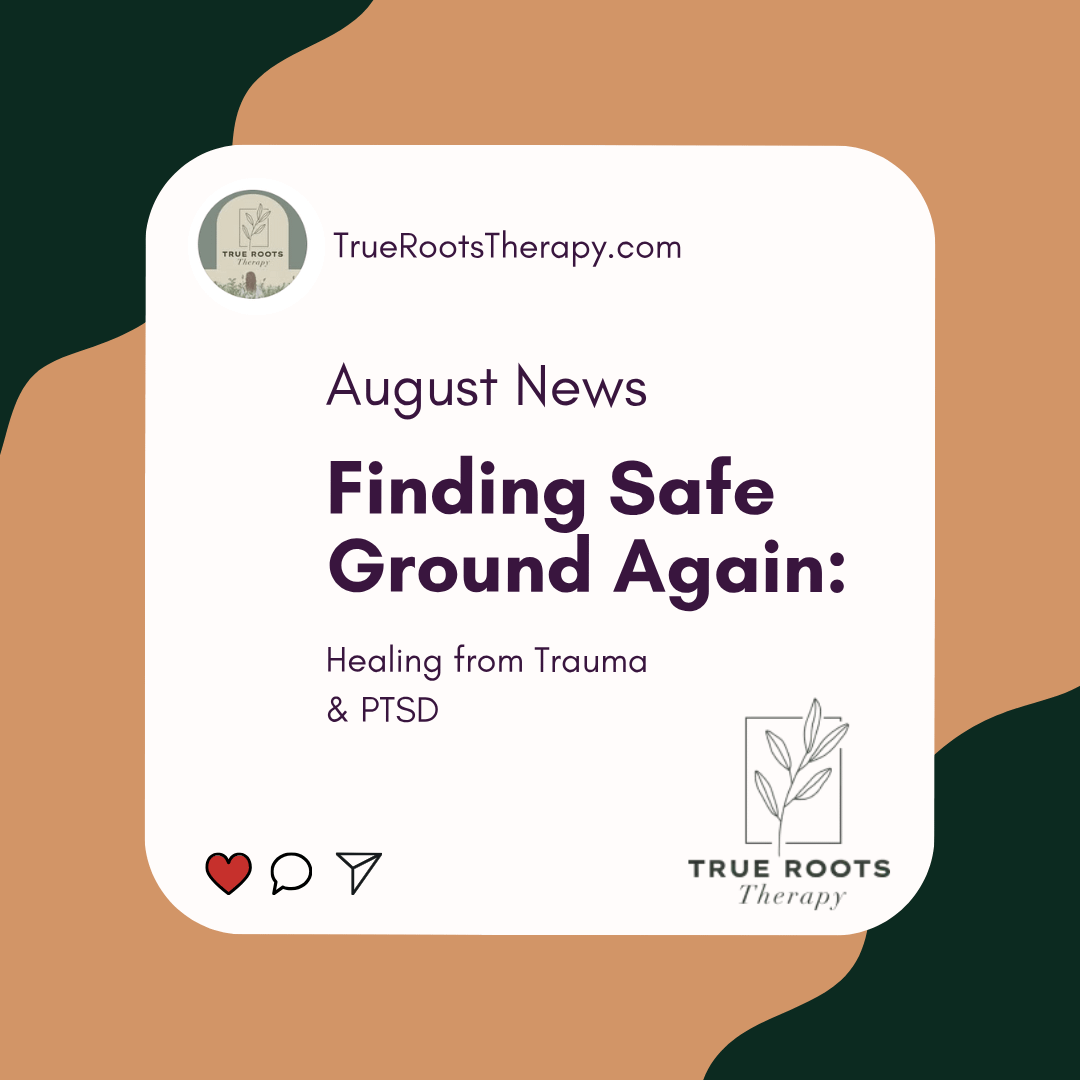 By Alyssa Haim, RP, CCC | Founder, True Roots Therapy
By Alyssa Haim, RP, CCC | Founder, True Roots Therapy
When trauma shows up in your life, it can feel like walking on shifting ground. You may be carrying memories, sensations, or fears that no longer make sense in your daily world. My name is Alyssa Haim, Registered Psychotherapist and Clinical Director at True Roots Therapy. I want you to know that I see this. I’ve sat with people whose past experiences continue to shape their present, leaving them feeling unsafe, disconnected, or constantly on alert.
If that’s where you’re at, you are not alone. I’m here to walk with you as you find your footing again. Trauma and PTSD don’t have to define the rest of your story.
What Trauma Feels Like
Trauma isn’t always a single, dramatic event; it can be a series of smaller hurts, griefs, or losses that build up over time. PTSD (post-traumatic stress disorder) can emerge when those experiences didn’t get the attention they deserved. You might notice:
- Flashbacks or intrusive memories that feel like you’re reliving the experience
- Hypervigilance, feeling constantly on edge or scanning for danger
- Emotional numbing, where joy, connection, and warmth feel out of reach
- Avoidance, steering clear of people, places, or memories that trigger distress
- Physical symptoms like gut pain, tension, disrupted sleep, or headaches
I’ve worked with clients who described feeling like their life was in black and white, always bracing for a threat, even though that threat may no longer be present. This tension can be exhausting for you, and it can also reverberate through your relationships, leaving you feeling lonely, misunderstood, or even ashamed.
How Trauma Affects Other People
If you’re struggling with PTSD, the people in your life may feel puzzled or helpless. Loved ones might unintentionally pressure you to “move on,” while others may pull away, unsure how to connect when you’re distant or shut off. You might push people away to avoid burdening them, or find yourself lashing out unexpectedly.
These patterns only deepen the disconnection you already feel, and reconnecting becomes harder because you fear you’re too much or too unpredictable to be loved.
This is why trauma-informed connections are so important: not just for you, but for everyone who cares about you.
Effective Treatment for Trauma & PTSD
At True Roots Therapy, we use a trauma-informed, evidence-based approach that adapts to your pace. Here’s how:
🧠 EMDR Therapy (Eye Movement Desensitization & Reprocessing)
EMDR helps your brain reprocess traumatic memories so they feel less overwhelming. Without needing to relive every detail, you can begin to heal and let once-raw memories become calmer, more integrated parts of your story.
🌿 Somatic Experiencing
Your body holds onto trauma in the form of tension, posture, or unexplained symptoms. Somatic Experiencing gently helps you notice and release these physical traces, so your body no longer carries your trauma.
❤️ Attachment-Based Therapy
Early trauma can impact how safe you feel in relationships now. We work to rebuild trust in connection, starting right in the therapy room, where healing relationships begin.
🎨 Art Therapy
Some emotions are challenging to put into words. Art therapy enables you to express and process deep emotions in a creative, embodied manner.
Our sessions might include moments of silence, movement, or guided awareness. They are not rushed or forced. You are not mandated to retell or relive. Healing happens when your nervous system feels witnessed and safe.
Why This Work Matters
Healing from trauma isn’t just about symptom relief; it’s about reclaiming your sense of self. It’s about returning to moments of colour, presence, and ease. Even small shifts, like being able to focus, sleep better, or feel connected again, can ripple into profound changes in how you live your life.
It also means rebuilding trust in yourself and the world. That’s not a small thing in a society that often tells us we should “just get over it.” But at True Roots, we believe trauma deserves time, care, and respect, not shortcuts or forced positivity.
What You Can Expect in Therapy
When we work together, I will hold space for you to feel seen and heard, without judgment or pressure. We’ll begin by slowing things down, helping your nervous system recognize that it is safe enough to start processing the pain you’re carrying.
In session, you might:
- Gently explore symptoms like sleep disruption, panic, or hypervigilance
- Use EMDR or somatic techniques to change your relationship to difficult memories
- Reflect on what feels bearing in relationships and where your boundaries may be needed
- Engage in creative or body-centred activities to release tension and anchor safety
Every step is guided by you. I believe that healing begins when past hurts are no longer hidden, but honoured, and when you are not rushing your own process.
You Are Not Defined by Trauma
If you’re living with PTSD or complex trauma, know this: your experience is valid. Your pain has meaning. You’re not damaged, you are human, responding to pain in the ways you needed to survive.
But you don’t have to remain in that survival mode. It is possible to find calm again, to feel safe in your body, and to reconnect with people in ways you deserve. Therapy can help you get there.
I invite you to contact me today to book a free 20-minute consultation. Together, we can start your journey toward healing and help you reclaim your sense of peace and self. We can explore how trauma-informed therapy can support your journey back to groundedness, resilience, and wholeness.
Reach out now—and let’s begin finding safe ground again, together.

